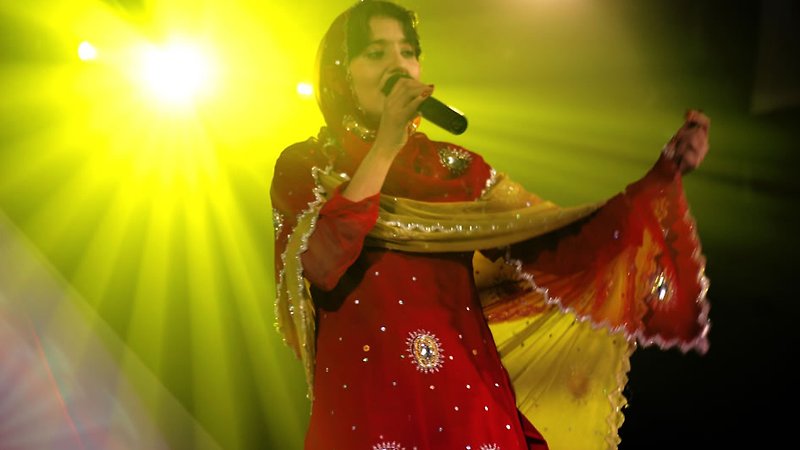Pop culture returns to Afghanistan after 30 years of Taliban rule. Though the old-guard elites vehemently oppose it, millions tune in weekly to Tolo TV’s jubilantly groovy Afghan Star. “Fantastic.” — Oprah Winfrey

“60% of the Afghan population [is] under 21, and despite the backdrop of conflict, corruption and repression they are funny, articulate and ultimately inspiring.” — Havana Marking
Screened as part of NZIFF 2009
Afghan Star 2008
Pop culture has returned to Afghanistan after 30 years of Taliban rule. Though the old-guard elites vehemently oppose it, millions tune in weekly to Tolo TV's jubilantly groovy talent quest Afghan Star. Like its Western models, the show offers non-professionals a chance to compete for a cash prize and record deal. Viewers vote by SMS. Two thousand people auditioned in 2007; three of them were women. Havana Marking's film follows four top contestants as they head towards the last-man-standing finale. Ethnicity clearly influences popularity as Hameed, a classically trained singer of the persecuted Hazara group, is well aware. But gender is the explosive issue. Wearing modern fashion and Bollywood makeup, 21-year-old Setara sets off a national scandal. Adored by young girls she's denounced by the traditionalists. Can the male supremacists turn back the tide? Marking amasses enough evidence for us to dare to hope not. — BG
“A fantastic documentary about a talent competition in a country where you'd never dream such a thing is possible.” — Oprah Winfrey